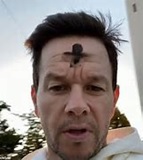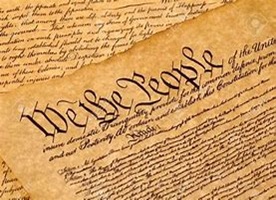[vc_row][vc_column][vc_single_image image=”949″ img_size=”full” alignment=”center”][vc_custom_heading text=”“A Piece of My Mind”” font_container=”tag:h1|font_size:50px|text_align:center|color:%232633ef” google_fonts=”font_family:Bitter%3Aregular%2Citalic%2C700|font_style:700%20bold%20regular%3A700%3Anormal”][vc_custom_heading text=”April-May 2023 Newsletter” font_container=”tag:h1|font_size:30px|text_align:center|color:%232633ef” google_fonts=”font_family:Bitter%3Aregular%2Citalic%2C700|font_style:400%20regular%3A400%3Anormal”][/vc_column][/vc_row][vc_row][vc_column width=”2/3″][vc_column_text]
Advancing Christian Faith and Values,
Defending Religious Liberty for All,
Supporting Civility and the Common Good
through Preaching, Teaching, Writing,
Activism and Reasoned Conversations
www.donaldshoemakerministries.com[/vc_column_text][/vc_column][vc_column width=”1/3″][vc_single_image image=”1304″ img_size=”full” alignment=”center”][/vc_column][/vc_row][vc_row][vc_column][vc_column_text] EASTER’S MESSAGE – “Christ died for our sins… he was buried…he was raised on the third day.”
EASTER’S MESSAGE – “Christ died for our sins… he was buried…he was raised on the third day.”
(1 Corinthians 15:3-4)
The Big Question for Easter—Why is this event so vital?
The Gospel proclaims Jesus’ resurrection as FACT. We embrace it by FAITH. If there is no FACT behind the FAITH, then our faith is of no value, whether it’s faith in our financial institutions or in Jesus as our Risen Lord.
So, what if Jesus didn’t rise from the dead? (1 Corinthians 15:12-19)
• The Gospel message that proclaims it is USELESS (verse 14)
• The apostles (foundation of our faith) are FALSE WITNESSES (verse 15)
• Our faith is USELESS and FUTILE—it just won’t work (verses 14 & 17)
• We remain in our SINS (verse 17)
• There is NO HOPE beyond the grave (verse 18)[/vc_column_text][/vc_column][/vc_row][vc_row][vc_column][vc_column_text]
“The Lord’s Prayer” Petitions 2 & 3 –
Praying for the Coming of God’s Kingdom and the Doing of God’s Will

“The Sermon on the Mount”
by Sylvia Consadori (1971)
“Thy Kingdom come.
Thy will be done on earth as it is in heaven.”
– Jesus (Matthew 6:10 KJV)
[/vc_column_text][/vc_column][/vc_row][vc_row][vc_column][vc_column_text]
“Let Your Glory Fall” by David Ruis (1994)
Ruler of the nations the world has yet to see
The full release of Your promise
The church in victory
Turn to us Lord and touch us
Make us strong in Your might
Overcome our weakness
That we could stand up and fight
Let Your glory fall in this room
Let it go forth from here to the nations
Let Your fragrance rest in the place
As we gather to seek Your face
Let Your kingdom come
Let Your will be done
Let us see on earth
The glory of Your Son
From the moment I first heard and sang this praise chorus at my church it became one of my favorites. It comes to mind now as I share thoughts on the second and third petitions of The Lord’s Prayer.
It is totally legitimate to teach the 2nd and 3rd Petitions separately. I have chosen to combine them because I think it likely that “Your will* be done…” is appositional. That is, it is a deeper unfolding of “Your Kingdom come.”
*God’s “will” in this petition is his desired moral will rather than his decreed will.
When God’s will is done on earth as it is in Heaven,
then we can truly say “God’s Kingdom has come to earth!”
The “Now” of the Kingdom of God as compared to “Then” (its future reality) is much debated by Christians (as it should be). At the two extremes are those who believe the Kingdom is altogether future, dramatically coming when Jesus returns and others who believe the Kingdom will be established before Jesus returns, ready and waiting for him.
Between these two extremes are many who see a present aspect to the kingdom (now being realized, in which devout Christians have vital roles to play). If this thinking goes too far, critics call it “over-realized eschatology,” but don’t let that phrase bother you. A sad example of this is the teaching that total healing of the body is available to all who have sufficient faith.
We who are between the two extremes believe firmly in the visible, personal Second Coming of Jesus, when the Kingdom of God is fully, decisively established on earth (Hebrews 9:28; Revelation 1:7, 19:11-16).
We also believe in the present form of the Kingdom of God. It’s “behind the scenes” and we are working on it. Yet we await the future form of the Kingdom. It will definitely NOT be “behind the scenes” and it will come without our effort.
These questions come up as we offer the two petitions to God in prayer:
• What is the present form of God’s Kingdom like? Where do we see it?
• What will the future form of God’s Kingdom be like?
• How should we pray for each of these?
The Present Kingdom
• It was inaugurated during Jesus’ earthly ministry as he encountered and defeated the forces of evil (Matthew 12:28). After his resurrection Jesus ascended to Heaven and was enthroned as king (Acts 2:32-36).
• It is seen in how the work of Christ is applied to those who become his followers. God has enabled them to “share in the kingdom of light.” They have been “rescued from the dominion of darkness and brought…into the kingdom of the Son he loves [Jesus].” They now have “redemption, the forgiveness of sin” (see Colossians 1:11-13).
• It should be seen in the life and practices of churches that claim loyalty to Jesus and the Scriptures. “The kingdom of God is not a matter of eating and drinking, but of righteousness, peace and joy in the Holy Spirit” (Romans 14:17). Churches must live out this verse.
Christians in the church at Rome were judging and belittling one another over whether one may eat this or that food or drink this or that drink. Paul says, “Stop judging. Stop belittling. You are wasting your time and ruining the church’s testimony when you fuss over ‘food and drink’ –issues that have nothing to do with the Kingdom of God. Instead focus on what is the essence of the Kingdom: righteousness, peace, joy.”
To put it practically, people should be able to see the kingdom qualities of righteousness and peace and joy at work in a church (a microcosm of the kingdom), not judgmental preaching over what people eat or drink. My 55 years of experience in the life of churches show me that we still have a ways to go, although ‘food and drink’ issues aren’t as central to the life of many churches as they once were.
When you pray The Lord’s Prayer, have in mind the blessings of present participation in God’s Kingdom and give thanks for them.
Pray that our churches live out righteousness and peace and joy, and for the extension of God’s Kingdom through evangelism throughout the world.
Pray for our world—for God to intervene against aggressive war, oppression, injustice, persecution, disrespect for human life and other social evils.
Pray for the impact of churches as forces for good in a hurting world. But don’t be naïve to think that the church will ever create a righteous world. *
*Criticism is directed today against “Christian Nationalism” – the term used by critics who react to those who seem to be militant and who see America as a “Christian Nation” that ought to be ruled by the Law of God. There’s an element of truth to this concern. But it’s also a great fundraising accusation by organizations critical of Christian activism.
The Future Kingdom
The Old Testament prophets made reference many times to what we might call “The Golden Age” of God’s rule. The New Testament sees this age as the result of the Second Coming of Jesus. Here’s how Isaiah described it –
The law will go out from Zion,
the word of the Lord from Jerusalem.
He will judge between the nations
and will settle disputes for many peoples.
They will beat their swords into plowshares
and their spears into pruning hooks.
Nation will not take up sword against nation,
nor will they train for war anymore. (Isaiah 2:3-4)
The “Golden Age,” then, is a time for the universal knowledge of the will of God and judgments based on that will.
It is also a time of universal peace. The United Nations building in New York has a “swords into plowshares” sculpture outside it. The best we can hope for prior to Jesus’ earthly reign is “proximate peace.” It should be pursued with vigor but also with realism about humanity’s willful quest for power and the spoils of conquest. This is not the hour to dispense with the “swords and spears.” It is the time to “pray and keep the (gun)powder dry.”
So when we pray The Lord’s Prayer with the future Kingdom in mind, we rightfully mourn the sufferings brought on by sinfulness in this present age—personal sin and corporate (systemic) sin. We rightfully look beyond all we can do about it to the day when God will finish the task.
We pray for God to vindicate the martyrs “who had been slain because of the word of God and the testimony they had maintained. They called out in a loud voice, How long, Sovereign Lord, holy and true, until you judge the inhabitants of the earth and avenge our blood?” (Revelation 6:9-10). Join in their prayer.
We pray for those who mistreat us as we lay aside retaliation and vengeance. “‘It is mine to avenge; I will repay,’ says the Lord.” God will make things right in the coming Great Day. See Luke 6:27-31 and Romans 12:17-21.
We pray the prayer of the church: “Maranatha. Come, O Lord” (1 Cor. 16:22).
The Kingdom of God in Song
“Hosanna” by Brooke Ligertwood –Our church recently sang this song. It calls for our devotion to God’s present Kingdom cause. It also looks forward to the revealing of God’s Kingdom: “I see the King of glory coming on the clouds with fire…”
I see the King of Glory, coming on the clouds with fire
The whole earth shakes, the whole earth shakes
I see His love and mercy washing over all our sin
The people sing, the people sing
Hosanna, Hosanna. Hosanna in the Highest
I see a generation rising up to take their place
With selfless faith, with selfless faith
I see a near revival stirring as we pray and seek
We’re on our knees, we’re on our knees
Heal my heart and make it clean
Open up my eyes to the things unseen
Show me how to love like You have loved me
Break my heart for what breaks Yours
Everything I am for your Kingdom’s cause
As I walk from Earth into eternity
Other Songs on the Kingdom of God
“I Love Thy Kingdom, Lord”
“Lead On, O King Eternal”
“Rise Up, O Saints of God!”
“Rise Up, O Men of God!”
“The Kingdom of God is Justice and Joy”
“We’ve a Story to Tell to the Nations”
“A Mighty Fortress Is Our God”
“Christ Is Coming! Let Creation Bid Her Groans and Sorrows Cease”
“Sing Praise to God Who Reigns Above”
“Is He Worthy?” (“He has made us a kingdom…”) – Chris Tomlin
[/vc_column_text][/vc_column][/vc_row][vc_row][vc_column][vc_column_text]

Mark Wahlberg
A Lenten Prayer for the Church
Lord, in ancient Israel you gave your promise to King Solomon:
“If my people, who are called by my name, will humble themselves and pray and seek my face and turn from their wicked ways, then I will hear from heaven, and I will forgive their sin and will heal their land.” (2 Chronicles 7:14)
Your church needs reformation and revival, Lord! Your church needs your forgiveness and mercy.
With a scornful wonder we see her sore oppressed,
By schisms rent asunder, by heresies distressed. *
Forgive us whenever we become carefree with our beliefs and issues of Christian morality. May we uphold your holy name and your revealed doctrines. May we obey your commandments to honor parenthood, the value of human life, the sanctity of marriage, our neighbor’s right to what they own, and the importance of speaking the truth.
Convict us and guide us to keep the fast that the Lord has chosen:
To loose the chains of injustice, to set the oppressed free.
To share our food with the hungry
and to provide the poor wanderer with shelter—
When we see the naked, to clothe them,
and not to turn away from our own flesh and blood? **
Give your people a heart of love for the communities where we live. Forgive us when we don’t seek the well being of our communities as you commanded us to do. May we take our citizenship and our precious rights seriously. May your churches be bright lights lifted high.
Purify your church, Lord. May we be filled with your Holy Spirit, worshiping you eagerly from our hearts. Cleanse your church by the washing of water through your Word, until that blessed day when you present your church to yourself as a radiant, holy, glorified body.
Even so, come quickly, Lord Jesus. Amen.
* From “The Church’s One Foundation”
** Read Isaiah 58:6-7
[/vc_column_text][/vc_column][/vc_row][vc_row css=”.vc_custom_1598373738095{border-radius: 3px !important;}”][vc_column][vc_column_text]
Religious Liberty Vigilance – Governor’s COVID Lockdown Is Finally Over!
 “I consider the government of the United States as interdicted by the Constitution from inter meddling with religious institutions, their doctrines, discipline, or exercises.”
“I consider the government of the United States as interdicted by the Constitution from inter meddling with religious institutions, their doctrines, discipline, or exercises.”
– Thomas Jefferson to Samuel Miller, 1808
[/vc_column_text][/vc_column][/vc_row][vc_row css=”.vc_custom_1672774688935{background-color: #c6956f !important;border-radius: 5px !important;}”][vc_column][vc_column_text]
March 19 – 3rd Anniversary of California’s COVID Lock-down
Gov. Gavin Newsom issued his heavy-handed statewide “Stay At Home” order.
Business activities were divided into “Essential” and “Non-Essential.” (Liquor stores and marijuana dispensaries were “Essential”. Churches were “Non-Essential.”)
No government should have the right to make that kind of determination.
In conflict with his ban, Gov. Newsom enjoyed dining with lobbyists and friends at the exclusive French Laundry restaurant in Napa Valley (wine country)—appropriately named because the restaurant’s prices will take you to the cleaners.
The governor had the power to issue “no bid” contracts, which he did by the hundreds. Such contracts would be forbidden in more ordinary times.
Outdoor dining was first allowed, then forbidden. A judge would rule that the ban was “not grounded in science, evidence, or logic.”
Constitutional rights such as Freedom of Assembly and Religious Freedom “took it on the jaw” during the lock-down. Among others, Grace Community Church in Sun Valley (John MacArthur, pastor) defied the ban in spite of threats and actions by Los Angeles County. Religious freedom prevailed. The State of California and Los Angeles County paid the church’s legal costs of $800,000.
The lock-down experiences nationwide should give us grave concern about how quickly cherished rights, thought to be guaranteed, can be removed. [/vc_column_text][/vc_column][/vc_row][vc_row css=”.vc_custom_1598373738095{border-radius: 3px !important;}”][vc_column][vc_column_text] April is Indeed a Taxing Month!
April is Indeed a Taxing Month!
For Preachers and Religious Organizations Too!
Church/State separation and the First Amendment allow for churches and religious organizations to be tax-exempt. Taxing religion would have a chilling effect on its free exercise. (See Walz v. Tax Commission of New York City, 1970.)
Like everyone else, clergy naturally search for ways to avoid paying unnecessary taxes. And religious organizations look for ways to minimize the impact of government on their enterprises. Nothing intrinsically wrong with such searches. But some solutions they choose are less than honorable.
Here are five examples of clergy, churches or religious organizations that cross a line that shouldn’t be crossed.
1. Religious organizations that avoid financial openness by reclassifying themselves as churches
The government recognizes the valuable social role played by non-profit organizations. These organizations are exempt from taxation and donations to them are tax deductible. But in return the government requires these groups to submit IRS Form 990, an ominous form the instructions for which will tax the mind of any reader who peruses them.
Form 990 is available to the public, except for Schedule B which lists major donors. Imagine the harassment that would take place if Schedule B were available, giving the names of donors to every critic!
[Form 990] includes important information about the organization, including
annual revenue, salaries of key employees, names of board members and large contractors, and the amount of money the organization spends on its core mission. Also highlighted are the amounts it spends on administrative and fundraising. This information is valuable to donors wanting to assess the effectiveness of a ministry. [Ministry Watch]
Churches are exempt from Form 990. The assumption is, donors to churches are “close at hand,” able to observe how well they operate or if they operate dishonorably. They do not need the disclosures Form 990 makes possible. (This assumption is mostly correct, in my opinion, but any church where it is not correct thereby gives members good reason to leave it.)
So guess what? Many tax-exempt charities are reclassifying themselves as churches. And this raises big problems in my mind. One is theological—these entities simply are not churches in any biblical sense. For one thing, people don’t enter their organization through baptism and don’t express unity in Christ with one another through frequent partaking of the Eucharist.
A second problem is the lack of disclosure that results, since a Form 990 will not exist and hence there are no contents open for inspection.
Bad practices thrive in darkness. This truism relates not only the individual organization, but to the marketplace in which it operates. Where there is a lack of information, trust goes down and disinformation can flourish. Donors lose confidence in individual organizations and society loses confidence in the value of the entire sector they represent. [Ministry Watch]
A third problem is that the absence of the “sunshine” given by Form 990 increases the influence of critics of religion who always look for ways to increase government scrutiny and, if possble, end tax exemption for religious organizations that hold, in their opinion, views that shouldn’t be tolerated.
[Resource: William Cole Smith, “When Is A Church Not A Church?” Ministry Watch, Dec. 19, 2019]
2. Pastors who don’t pay into Social Security
Many years ago pastors didn’t have to pay into Social Security—this was optional. Those days are long gone. But I guess the word hasn’t spread well, or we’ve turned off our hearing aids rather than having to hear it.
Pastors are required to pay into the Social Security system unless they file Form 4361, which declares they are opposed to government assistance programs like Social Security as a conviction of their faith (not just because they’d rather not pay it or think they’d do better having the money to invest elsewhere).
In Form 4361 the minister certifies to the IRS, “I am conscientiously opposed to, or because of my religious principles I am opposed to, the acceptance (for services I perform as a minister, member of a religious order not under a vow of poverty, or Christian Science practitioner) of any public insurance that makes payments in the event of death, disability, old age, or retirement…” And there is more, including giving notification to one’s ordination body of this conscientious opposition.
Very, very few pastors can claim this exemption in good conscience. Others who file Form 4361 either choose to lie about their convictions or else sign without reading the details and perhaps after getting bad advice, which is a lapse in due diligence.
I have known cases where pastors avoided paying into Social Security and also never got around to making comparable investments for their retirement years. To make matters worse, some lived in church-owned parsonages and therefore had no real property to sell or to live in during retirement years. This is sad and regretful and could have been avoided.
A word to church leaders: Please realize that a pastor is considered “self-employed” for purpose of Social Security and therefore pays “both halves” of Social Security and Medicare taxes. That currently totals 15.3%!
Enlightened congregations will want to offset some of a pastor’s Self-employment (Social Security) tax. Just as they pay half of regular employees’ Social Security taxes (7.65%), they equitably reimburse half of a pastor’s tax.
3. Pastors who don’t pay Social Security (Self-employment) tax on their Housing Allowances
There are real tax rules and then there are tax rules that don’t exist. One of the latter is the notion that the Housing Allowance a pastor receives (or the fair market rental value of a church-supplied parsonage) isn’t subject to Social Security taxes. I’ve talked to pastors who are adamant about this. They are adamantly wrong.
See IRS Publication 517, Social Security and Other Information for Members of the Clergy and Religious Workers, “Self-Employment Tax: Figuring Net Earnings,” #4 of “Amounts included in gross income.” Also page 9 – Exclusion of minister’s housing from Income Tax: “This exclusion applies only for income tax purposes. It doesn’t apply for SE tax purposes.“
4. Pastors who don’t report income from weddings, funerals, and the like
A pastor is pretty much on an “honor system” for reporting earnings from ministries such as weddings or funerals. Usually he is paid in cash. Most speaking engagements at churches are exceptions to this—the minister will probably be paid by check. But unless the compensation received in a year is $600 or more, a church is not required to report it to the IRS and supply the pastor with a #1099 for tax reporting purposes.
Pastors must keep good records and report (on Schedule C) all income for services rendered, whether in cash or not, along with expenses.
5. Churches that don’t take into account the taxes and expenses pastors commonly incur
When I was serving a church in Indiana I once had a conversation with a candidate for the state assembly, no less. He was amazed when I told him that ministers paid taxes! Assumptions like this are not rare. But we should never find them among those who set a pastor’s salary, benefits or expense account.
When providing services for weddings, funerals, speaking engagements, etc., ministers will pay about 50% in taxes and costs, once state and federal income taxes, Self-employment Tax (for Social Security) and expenses are factored in. This means a $100 honorarium is really a $50 honorarium.
Enlightened congregations will see to it that such realities are taken into account when setting wages and deciding honoraria, for example in their wedding policies or for guest speakers. Pastors will be given expense accounts to cover use of auto, books, continuing education and more.
In conclusion I hasten to say: most religious charities are conscientious and dedicated to their ministries. Likewise, pastors I know are dedicated and sacrificial to their callings. They believe they have a duty before God to pay taxes and respect the law.
At the same time, I acknowledge we have often been weak when it comes to tax issues. We listen to gurus and convince one another that we don’t have to report some income or pay some taxes. I attended a ministers meeting once where a tax expert spoke and then listened to comments. At one point he said, “I can’t believe some of the things I’m hearing here today!”
The Apostle Paul was greatly concerned that his handling of funds for the needy be above reproach. His word should echo with us all: “We are taking pains to do what is right, not only in the eyes of the Lord but also in the eyes of men” (2 Corinthians 8:21 NIV).[/vc_column_text][/vc_column][/vc_row][vc_row][vc_column][vc_column_text]
www.donaldshoemakerministries.com
Don has been a member of the clergy in the Long Beach, California area since 1970. He now serves as Pastor Emeritus of Grace Community Church of Seal Beach (where he was senior pastor 1984-2012) and as Senior Chaplain of the Seal Beach Police Department (2001+). He previously was an assistant professor of Biblical Studies at Biola University (1976-84) and chaired the Social Concerns Committee in the Fellowship of Grace Brethren Churches from 1985 to 2019.
His graduate work includes a Master of Divinity from Grace Theological Seminary, a Master of Theology from Fuller Theological Seminary with a concentration in Christian ethics, and a Doctor of Ministry from American Baptist Seminary of the West (now Berkeley School of Theology) with a concentration on the Charismatic Movement. His law school studies included a course on the First Amendment. He and his wife Mary have been married for over 56 years. They have two children and six grandchildren.
© 2023 Donald P. Shoemaker
[/vc_column_text][/vc_column][/vc_row]

